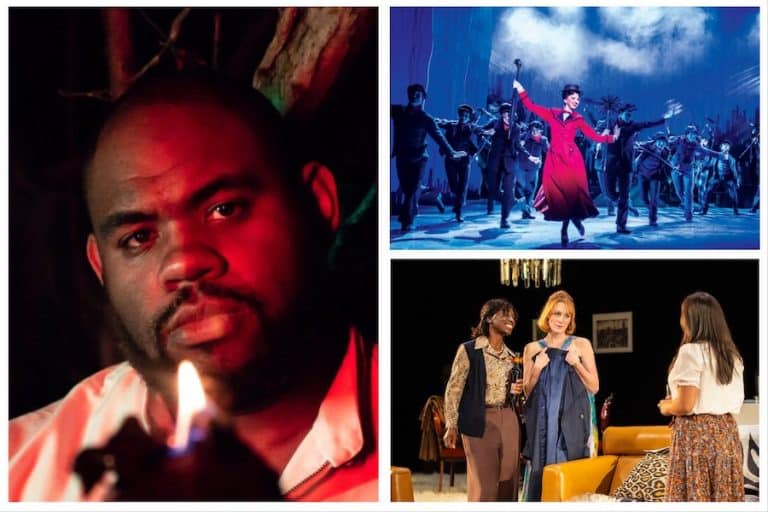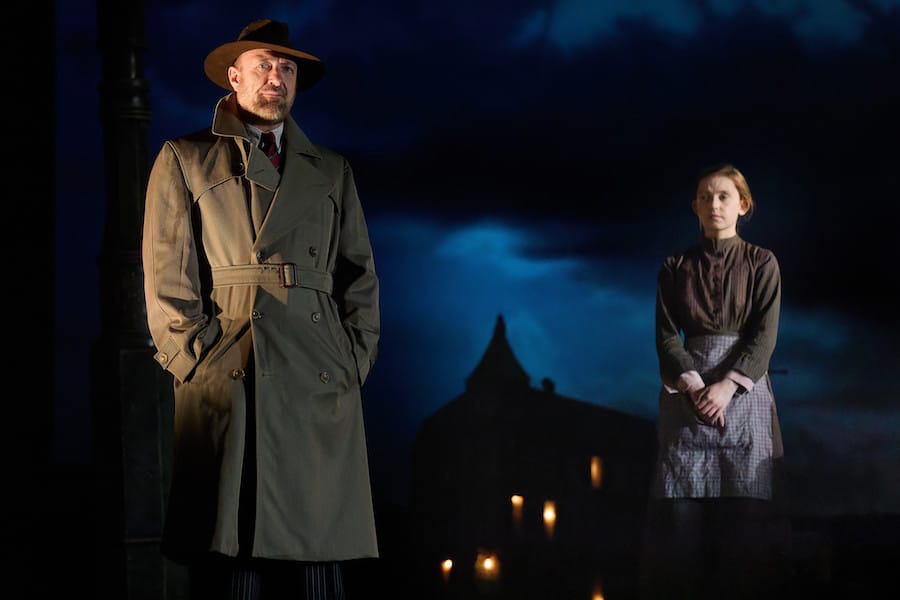Review: New Dawn Fades at The Dancehouse
- Written by Emily Oldfield
- Last updated 7 years ago
- City of Manchester, Culture, Theatre

Ian Curtis was born in Stretford in 1956, married at 19, had joined Joy Division and released Unknown Pleasures by the age of 22, and was dead aged 23.
Numbers certainly do not summarise the work of this man or the band. But what they remind us of is how young Joy Division were – painfully young even.
New Dawn Fades: A Play About Joy Division and Manchester by Brian Gorman has been incensing audiences since 2014. The 2018 edition features a largely new and much younger cast.
Joseph Walsh, who plays Curtis in the latest production, is just 19 himself but manages to take youth, naivety and vulnerability – as was at the heart of the real Joy Division story – and turn it to brilliant advantage.
Having seen a previous production in which the play’s host Tony Wilson is portrayed as an enigmatic, older Mr Manchester figure, I wondered how a much more youthful version of the man, played by Al Donohoe, would go down.
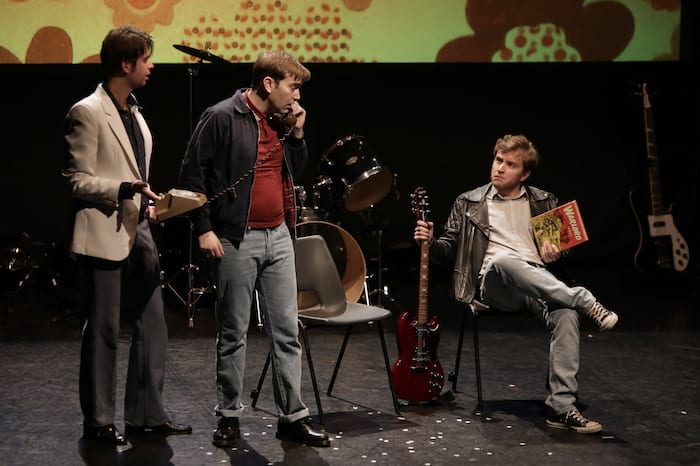
For this was Tony Wilson of the 1970s and Granada Reports fame, a flamboyant figure with a passion for fancy suits and coiffed hair.
Needless to say, we were quickly in love. Donohoe tested the audience’s affection rather quickly. Like any presenter, he runs the risk of being either a high-flying host or an irritating aside. He was certainly the former, and the mood in the room notably warmed to him.
It was like we were being given our very own Manchester bulletin, as the unusual narrative style of the play spreads out like a news programme, with Wilson our guide through a history of the city itself, before seeing to the band.
A backdrop screen flashes up a series of images – original photographs combined with striking cast shots by Shay Rowan – accompanied by the opening riff of Love Will Tear Us Apart at intervals for added grit.
Such interesting staging makes the story of Manchester all the more engaging, from its Roman origins to high rises – or, as Hooky puts it, ‘a shithole’.
One of the most endearing aspects of this play – skilfully directed and driven in its emotional impact by Emma Bird – is the clever characterisation.
The band themselves – Ian Curtis, Bernard Sumner (Nathaniel McCartney), Steve Morris (Matthew Melbourne) and Peter Hook (Bill Bradshaw) – are dynamic figures, playing a part in dismantling the Joy Division myth. From moody musicians to emotionally-tested individuals, we see them struggle as well as surge.
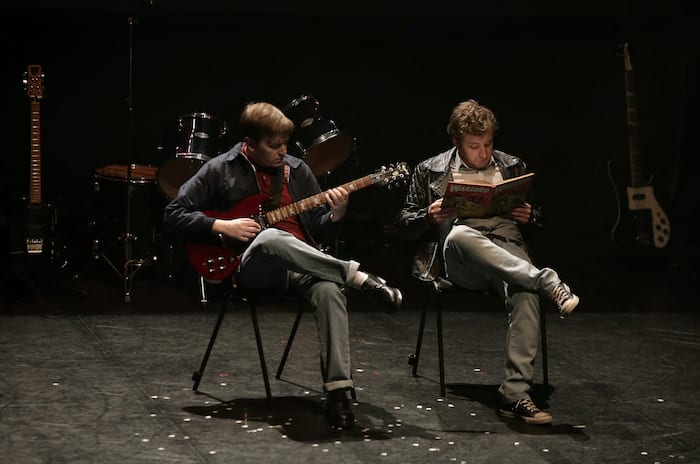
There are some lighter, comic touches in the over-enthusiastic pogo-ing journalist Paul Morley and a brilliantly bizarre Martin Hannett (both excellently played by Sean Mason).
Giles Bastow plays Rob Gretton ambling around the stage with an attitude and an arsenal of expletives, as the story unfolds of signing with Factory Records, television fame, tours and gigs.
Watching events unfold, we see the initially tender relationship between a highly convincing Ian Curtis and an evocative young Debbie (played by Leah Gray-Scaife) turn into a battle between ambition, artistry and affection.
These two actors, not yet even in their 20s, are perfect for articulating the touchingly tragic tale we often blot out behind the music – Ian’s deteriorating health and epilepsy, his insecure over-working, even his fear of holding his baby daughter in case he had a fit and dropped her.
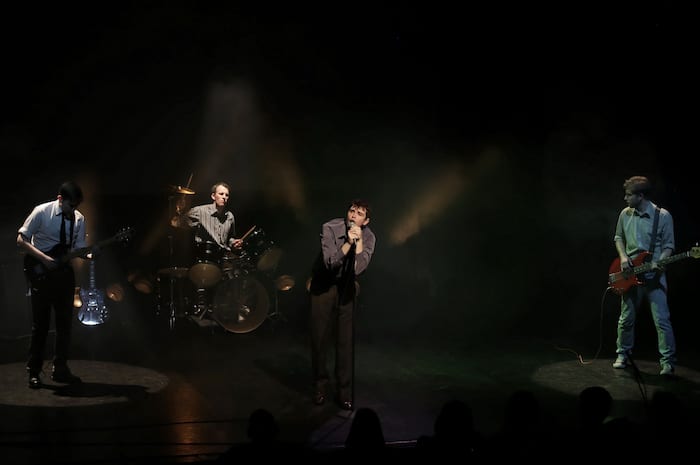
In a particularly intense scene, Ian and bandmate Bernard are walking through a graveyard, when Bernard asks Ian if he could try out past-life regression on him.
It’s a moment which cleverly melts together the play’s historical overview with the web of thoughts and ideas which made the man so fascinating, yet also frustrated. Images clamour for attention on the screen and Curtis starts to convulse, quickly brought back to consciousness by a panicking Bernard who asks his friend to say his name.
“Ian… my name’s Ian.”
The words resonate in the room, an expression of identity in a play which celebrates both Joy Division as young lads as well as creative catalysts in this city’s cultural history.
At times things become a little strained on stage. Using song lyrics as dialogue, though artful, can sometimes be awkward.
But awkwardness is important to the Joy Division story, a story of young people eager to give the world something to pay attention to. A band which lasted for less than four years but whose legacy is ongoing.
Punctuated by live music performances which bring together volume and vulnerability, including a skilful imitation of Curtis’ haunting stage presence and dancing, drawn together with the bittersweet backlighting of his final moments, this is not just a play but an immersive experience.
No wonder it had a standing ovation on opening night. Be sure to book before it ends on Saturday.
The Dancehouse until 14 April.
- This article was last updated 7 years ago.
- It was first published on 12 April 2018 and is subject to be updated from time to time. Please refresh or return to see the latest version.
Did we miss something? Let us know: [email protected]
Want to be the first to receive all the latest news stories, what’s on and events from the heart of Manchester? Sign up here.
Manchester is a successful city, but many people suffer. I Love Manchester helps raise awareness and funds to help improve the lives and prospects of people across Greater Manchester – and we can’t do it without your help. So please support us with what you can so we can continue to spread the love. Thank you in advance!
An email you’ll love. Subscribe to our newsletter to get the latest news stories delivered direct to your inbox.
Got a story worth sharing?
What’s the story? We are all ears when it comes to positive news and inspiring stories. You can send story ideas to [email protected]
While we can’t guarantee to publish everything, we will always consider any enquiry or idea that promotes:
- Independent new openings
- Human interest
- Not-for-profit organisations
- Community Interest Companies (CiCs) and projects
- Charities and charitable initiatives
- Affordability and offers saving people over 20%
For anything else, don’t hesitate to get in touch with us about advertorials (from £350+VAT) and advertising opportunities: [email protected]

“It’s not a ‘no go’ area anymore, it’s a really lovely place” – The reinvention of Ordsall

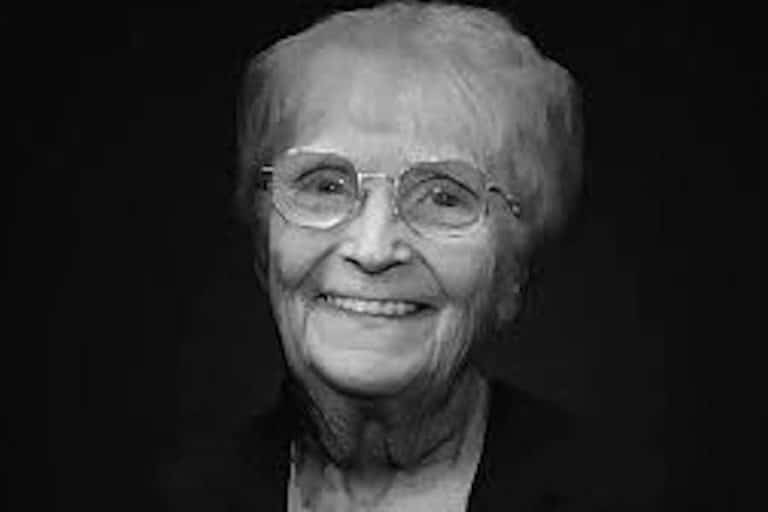

Didsbury Sports Ground needs your help to rise again after devastating floods
